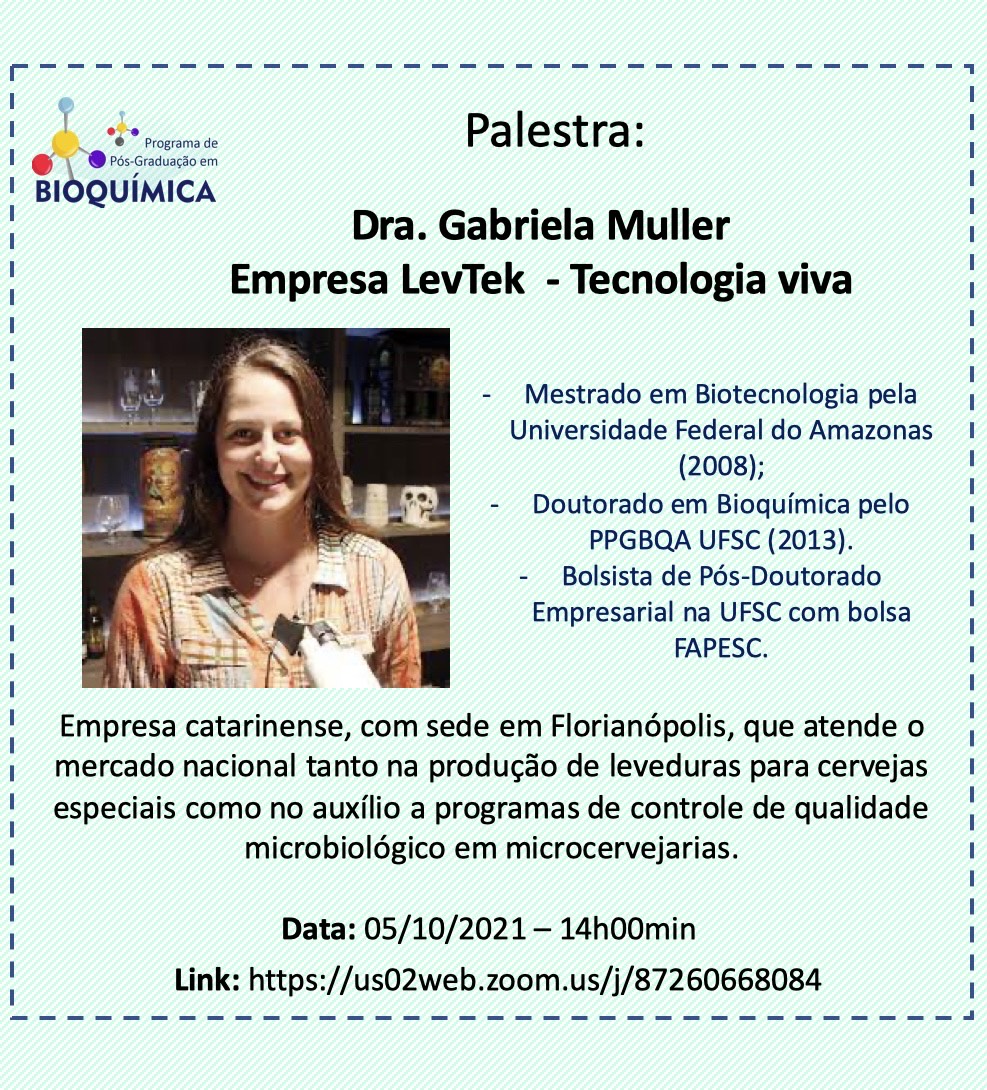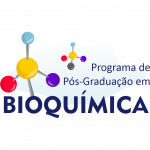Enrollment period for regular students: 03/23 to 03/27 – online enrollment period in courses of the PPGBQA itself through the Graduate Academic Control system (CAPG): www.capg.ufsc.br
Enrollment of students from other UFSC Graduate programs: 03/28 – beginning of the enrollment requests for students from other UFSC Graduate Programs. The requests must be sent to: academico.sipg@contato.ufsc.br
Enrollment in an isolated courses (students outside UFSC): 03/30, 03/31 and 04/01. Period for requesting enrollment in an isolated courses through the Postgraduate Academic Control system (CAPG): https://capg.sistemas.ufsc.br/inscricao/
Guidelines for enrollment in an isolated courses: 1) Access the address https://capg.sistemas.ufsc.br/inscricao/ 2) Make your registration to access the system; 3) Select the “master’s” level. 4) In the field “Program dedication”, select “partial”; 5) In the field “Interest in Fellowship”, select “No”. 6) Do not nominate any advisors. 7) Upload the required documents (e-mail copy of the authorization of the professor responsible for the registration form, copies of the identity card, CPF and undergraduate diploma or transcript if you are still in the course. Enrollments will be confirmed or not by e-mail sent by the secretary.
The semester disciplines will be informed at: https://ppgbqa.ufsc.br/disciplinas-do-semestre/disciplinas-do-semestre/
No dia 19 de outubro foi publicada no periódico Plos Biology a terceira atualização de uma pesquisa conduzida por uma equipe da Universidade de Stanford listando os 100 mil cientistas mais influentes do mundo. O banco de dados criado utilizando a base de dados Scopus até agosto de 2021 e avalia métricas como citações, índice H, coautorias e um indicador composto. Os pesquisadores foram ranqueados pela sua contribuição ao longo da carreira e também pela contribuição recente (2020/2021).
A UFSC tem 26 pesquisadores na nova listagem, que inclui um total de 812 pesquisadores brasileiros. O PPGBQA tem 2 pesquisadores que aparecem na lista pelas contribuições ao longo de suas carreiras, o Prof. Dr. Afonso C. D. Bainy e o Prof. Dr. Marcelo Farina. O Prof. Dr. Marcelo Farina já aparecia na listagem publicada em 2020 e foi destacado ainda como um dos pesquisadores mais influentes por suas contribuições recentes (2020/2021). Mais informações: https://noticias.ufsc.br/2020/11/pesquisadores-da-ufsc-estao-entre-os-100-mil-mais-influentes-do-mundo/
(more…)
On October 27, 2021, Profa. Dr. Ana Lúcia Rodrigues from PPGBQA received the medal of the Women in Science Award 2021 (Senior Category – Life Sciences) from the Dean, Prof. Dr. Sebastião R. Soares, and the superintendent of projects, Profa. Dr. Maique Weber Biavatti. Congratulations Prof. Ana Lúcia and PROPESQ for the initiative! More information at: https://premiospropesq.ufsc.br/noticias/

Date and time: October 26th, 2 p.m.
Link: https://us02web.zoom.us/j/87260668084

Date and time: October 19th, 2 p.m.
Link: https://us02web.zoom.us/j/87260668084

Date and time: October 5th, 2 p.m.
Link: https://us02web.zoom.us/j/87260668084

Date and time: September 28th, 2 p.m.
Link: https://us02web.zoom.us/j/87260668084


 »
» Português do Brasil
Português do Brasil Español
Español











